William Edward Burghardt Du Bois was born on February 23, 1868, in Great Barrington, Massachusetts. His parents, Alfred and Mary Silvina Du Bois, were well-established, property-holding families in the area, descended from mixed race people who were free long before the Civil War. Alfred was born in Haiti and emigrated to the United States sometime before 1860.
Du Bois grew up in a relatively integrated and sheltered atmosphere, ostensibly free from the racial torment and contradictions that raged throughout the Reconstruction era South. Du Bois’ talents as a writer were fostered and promoted by his teachers, and he graduated from an integrated high school.
The congregation at the church his family attended, the Congregational Church, collected donations to pay for Du Bois’ tuition at Fisk University, a new black institution in Tennessee. This was his first experience in the South. After graduating from Fisk with a B.A., Du Bois pursued a second bachelor’s degree, graduating cum laude with a degree in History in 1890. He worked his way through university, along with scholarships, loans, and his inheritance.
Afterwards, Du Bois traveled to Germany to study at the University of Berlin and was able to travel throughout Europe and study under the most cutting-edge social scientists. He ultimately became the first African American to earn a Ph.D. from Harvard University in 1895.
He began teaching at Atlanta University in 1897, where he continued to write articles and books, and eventually hosted the Atlanta Conference on Negro Problems. Du Bois also became a fierce opponent of the accommodationist tactics of Booker T. Washington, who urged African Americans to “cast down their buckets where they are” and accept the white man of the South as a friend, not as an enemy. He rejected Washington’s calls for African Americans to not struggle for full social and political equality on all bases. In 1903, Du Bois published Souls of Black Folk, to show the genius and humility of Black Americans, and urge them on to self-determination and pride.
In 1905, Du Bois and several other activists met near Niagara Falls in Canada to work towards developing a concise and effective program for political change for the African American people. This Niagara Movement would eventually lay the foundation for the NAACP’s founding in 1909, and Du Bois served as Editor of its Crisis magazine beginning in 1910.
In his scathing, sarcastic editorials, Du Bois supported women’s rights, the Socialist Party, and unionism, while struggling against and criticizing the white chauvinism of many people who held prestige in these movements. He also became a renowned anti-imperialist, expressing scathing criticism of World War I and linking it to colonialism and the Scramble for Africa. He also predicted the overthrow of European colonialism and said that the war would usher in a new wave of struggle for liberation for the colonized masses. His writing and research and political prestige grew throughout the 1910s, ’20s and ’30s, as he wrote scathing articles on the bloody summer of 1919. In 1935, he published his magnum opus, Black Reconstruction in America.
During World War II, Du Bois opposed U.S. entry on a flawed anti-imperialist basis, as he viewed Japan as being the protagonist in an anticolonial war. During the 1950s, his leftist political leanings and associations led to him being hounded by the government caught in the McCarthyite anti-communist hysteria, and he willingly exiled himself. He stated his intention to renounce his United States citizenship and settle in Accra, Ghana, where he died in 1963 at the age of 95.
Sources:
Webdubois.org








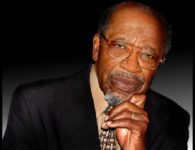

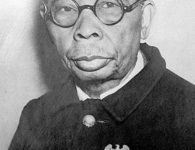
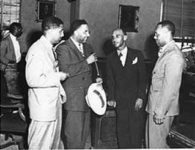
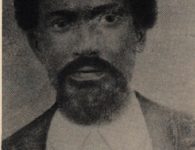
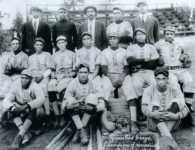
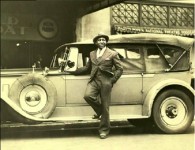
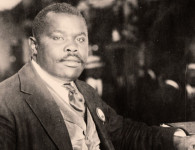

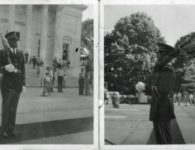
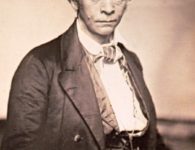
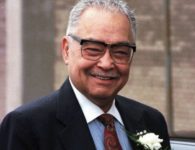

4 Comments
Du Bois, was a great man, BUT, he was not without issues. He believed that there should be a “Talented Tenth.” These were the people that would be educationed and moved the race forward, however, they should be light skinned Blacks. As he said, “The lighter, the better.”
He disliked Marcus Garvey, due to the color of his skin. Marcus, disliked him also. Garvey went to his office in NY and discovered that EVERYONE IN HIS OFFICE, WAS HIGH YELLOW. So light, that many of them could pass for white. They talked about each other all the time and Du Bois, ridculed him for his Back to Africia beliefs, but it was ironic, that he died and was buried in Africa. A continent, that he ridculed 40 years prio to his death.
I have discovered some significant things through your blog post post. One other thing I would like to state is that there are numerous games in the marketplace designed mainly for preschool age small children. They incorporate pattern identification, colors, dogs, and forms. These typically focus on familiarization rather than memorization. This helps to keep children engaged without sensing like they are learning. Thanks
A different issue is that video gaming has become one of the all-time most significant forms of fun for people of any age. Kids enjoy video games, and also adults do, too. Your XBox 360 is just about the favorite games systems for many who love to have a lot of activities available to them, and who like to play live with other individuals all over the world. Many thanks for sharing your thinking.
Great Barrington was a place that I visited a number of times. Living there W.E.B. Dubois as a youngster must of had good schools for his primary education. The Berkshire Hills also were good teachers of what it takes to plod onward to soaring heights.
I still admire his great work.
I once hoped to visit Ghana to promote solar cooking and solar power systems. Had I been fortunate I would have visited his home and paid respects. Had I been there I also would have visited Sodom.